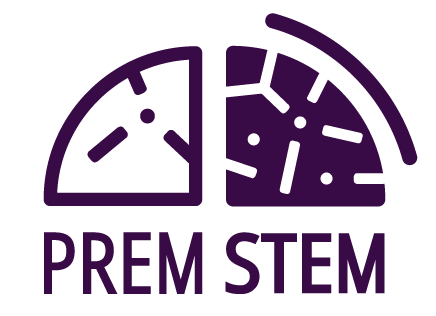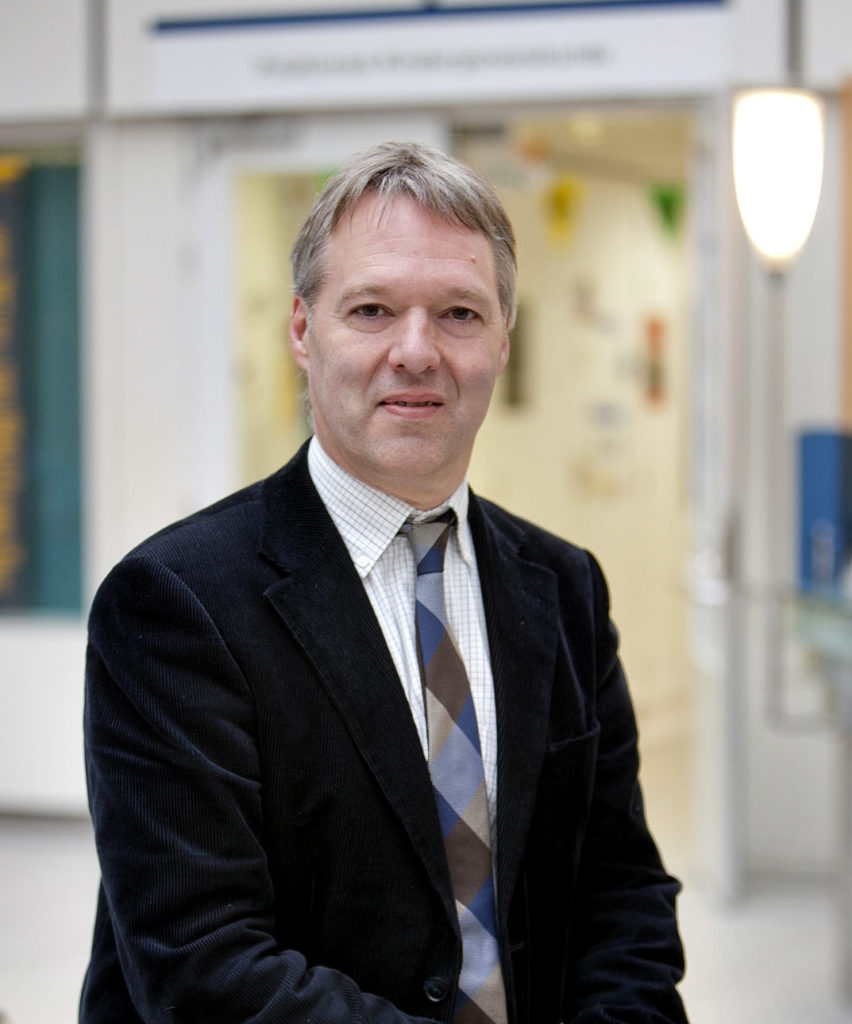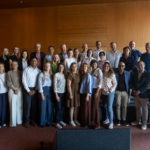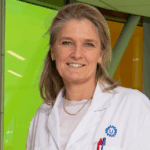What is your area of work and what attracted you to it?
I became an academic neonatologist because I was attracted to the wide spectrum of challenges, solutions and satisfaction that it offers. It varies from a good physiological understanding, medical treatment and an excellent acute skill set, to teaching, training and innovation by basic and clinical research, and to social skills, collaboration and communication, where parents and families play an essential role in all aspects of what happens to their newborn infant.
As I gained organisational experience as a Paediatric Department Chair, and also internationally as President of the European Society for Paediatric Research (ESPR), I decided to combine these international organisational aspects and my neonatology experience with the interests of parents of newborn infants and joined the European Foundation for the Care of Newborn Infants (EFCNI) as senior Medical Director. The overall goal is to improve newborn health in Europe.
What have been your proudest accomplishments so far?
My proudest accomplishments are all based on collaborative efforts in my different roles in my career. In research, studying surfactant metabolism in human preterm infants was an international and multidisciplinary collaboration, as was the setup of a pulmonary research line in Maastricht. In my role as Department Chair and Research Leader, I am proud of our strategy of academic-family integrated care, leading with the inclusion of many disciplines to the start of the Woman, Mother and Child Centre, which the research will be fully aligned to by the end of 2020.
As President of ESPR, the collaboration with the Union of European Neonatal and Perinatal Societies (UENPS) and EFCNI – which resulted in the Joined European Neonatal Societies (JENS) conference – was a great step forward. In the EFCNI project on European Standards of Newborn Health, I was the subject chair of Medical Care and Clinical Practice where we accomplished a lot with a large and diverse professional group, all having their own strong opinion but with the common goal of improving newborn care.
What is the most important objective you want to address in your work?
EFCNI is dedicated to improving the situation of mothers and newborn infants in Europe across the full spectrum of care, promoting and protecting the right to the best start in life. Given my background and role of Medical Director, I am committed to relating the parents’ perspective, which is what EFCNI stands for, to scientific and health professionals and networks to accomplish the goal of improving newborn care and decrease inequalities in Europe. Connecting parent perspectives with neonatal and scientific aspects in ambitious research projects such as PREMSTEM is a very important task to accomplish this.
What is your organisation’s role on the PREMSTEM project?
EFCNI is leading the development of PREMSTEM’s dissemination and exploitation strategy to maximise its impact on health and society. Together with other partners, key project messaging, policy advocacy and an exploitation strategy will be developed and delivered. The current project does not involve clinical studies but explicitly prepares for the future clinical use of the new treatment and therefore patients, parents and stakeholder perspectives are essential for the future success of using the research findings to improve neonatal outcomes. Maastricht University, where I still have a part-time appointment, is also involved in PREMSTEM and I am involved as an advisor/researcher under the lead of main investigator Doctor Tim Wolfs.
What is innovative about PREMSTEM? Why is this research important?
About one in ten babies is born preterm. Although survival of preterm infants has significantly improved, many have lifelong problems. For the neurological problems related to brain immaturity and damage no effective therapy exists at the moment. Preliminary studies clearly show the potential of stem cells, and especially umbilical cord derived mesenchymal stem cells (MSCs), to decrease brain problems. This project combines the wide expertise of many researchers in the field to answer the necessary questions to move this new therapy into clinical trials and neonatal practice.
What is the most significant outcome you hope PREMSTEM can achieve?
By providing a safe and effective therapy to minimise brain problems of preterm infants, long-term outcomes and quality of life can improve dramatically, including better social and employment prospects. For families and society this would mean a significantly lower burden. Let’s make it work for our children and families!






